- Norfolk Technical Center
- Evening Courses & Apprenticeship Programs
- Adult Apprenticeship Programs
-
ADULT APPRENTICESHIP PROGRAMS
2025 - 2026 Adult Evening and Apprenticeship Catalog
2025 - 2026 Apprenticeship Programs
Cosmetology (COS 101)
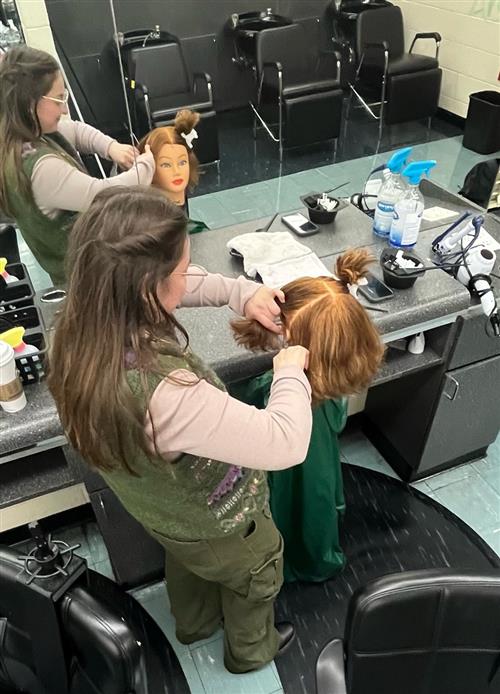
This one-year long course is limited to only Virginia Registered Apprentices. The apprentice must bring their card or enclose a copy of it when enrolling. Costs include the use of all necessary tools of the trade, all chemicals, the manikin and all consumables associated with the training. Two evenings will be double class nights, 6 hours each, to accommodate practice for the State Boards. If the class fills, a second class will be started to accommodate the overflow.
Barbering (BAR 101)
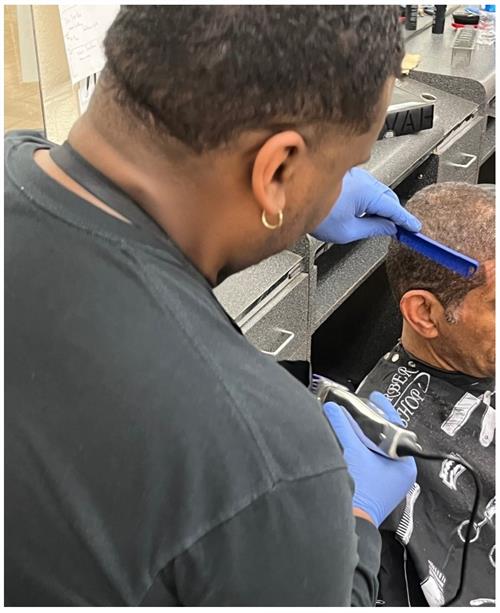
This year-long course is designed to teach the barbering apprentice the needed information to support passing their licensing exam. Classes are open to anyone but students must become registered apprentices through the Virginia Department of Labor and Industries and complete 2,000 on-the-job hours in a shop to test for the State Board Exam. This course offers Related Instruction Theory and at least two practice State Board reviews; which requires two of the scheduled sessions to be extended from 3pm to 9pm. Costs do not include the apprentices' kits, but they do include the use of all necessary tools of the trade, chemicals, the manikin, and any consumables associated with the training.
Dispensing Optician (Levels 1-2)
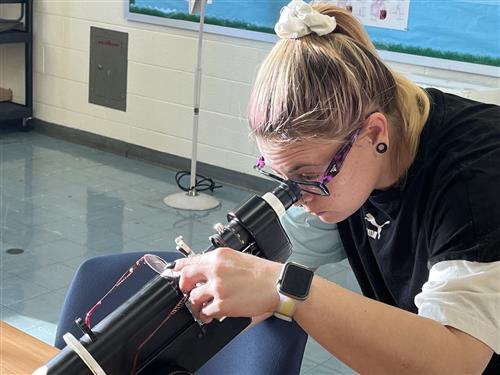
OPT-H 101; Year One: This course, which is divided into quarterly topics, provides the fundamental foundation for a Dispensing Optician. Instructional topics offer an understanding of ocular history, language, anatomy and physiology, basic light theories, and theories of Optical Dispensing and the Optical lab.
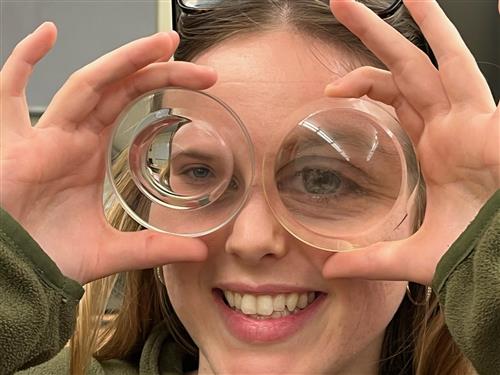
OPT-H 201; Year Two: This course, which is divided into quarterly topics, provides the essential content for a Dispensing Optician, who is preparing for the Virginia Optical License Exam. Instructional topics offer an understanding of the ocular history, language, ocular anatomy and physiology, light theories, and theories of Optical Dispensing and the Optical Lab.
Independent Electrical (Levels 1-4)
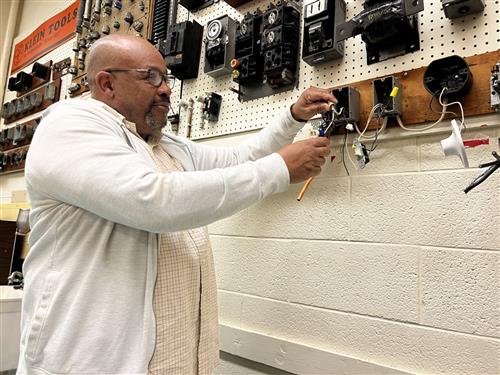
IE 101; Year One: This course covers safety, math, hand tools, power tools, introduction to blueprints, basic rigging, hand bending, anchors and supports, introduction to the National Electric Code, conductors, services, voltage drop, DC theory, series/parallel circuits, and residential wiring.
IE 201; Year Two: This course covers AC theory, motors, grounding, conductor, installations, cable tray, conductor terminations and splices, electrical services, circuit breakers and fuses, contractor and relays, and lighting. The Apprentice is required to have a National Electrical Code Book.
IE 301; Year Three: This course covers load calculations, conductor selection and calculations, overcurrent protection, wiring devices, distribution systems, motor calculations, HVAC AC systems, and hazardous locations. The Apprentice is required to have a National Electrical Code Book.
IE 401; Year Four: This course covers commercial/industrial lighting, specialty lighting standby and emergency systems, basic electronic theory, fire alarm systems, advanced controls, HVAC controls, welding machines and heat tracing, and freeze protection.
Independent Plumbing (Levels 1-4)
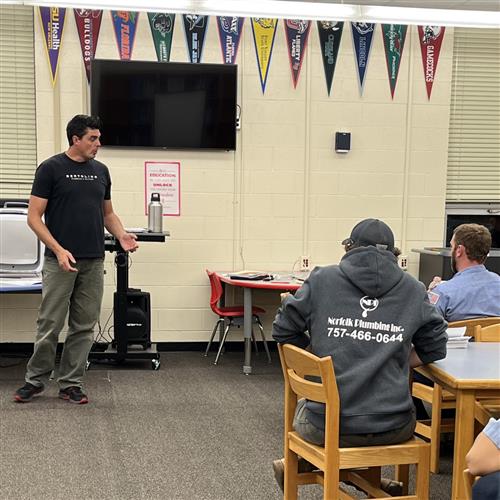
PLU 101; Year One: Installation Practices: This course covers an introduction to the plumbing trade, history, careers, tools, job site safety, rough in - copper and plastic - cast iron soil pipe - steel pipe, and an introduction to blueprint reading. Also covered are plumbing mathematics, related science, and first aid.
PLU 201; Year Two: Installation Practices: This course covers the rationale for the development of a plumbing code for general regulations, fixtures, water supply and distribution, water heater, sanitary drainage, vent systems, traps and interceptor, and storm drainage. Also taught are estimating blueprints and plumbing mathematics. The International Plumbing Code book is a required textbook used in courses taken over the next two years. Welding labs are also a part of this course and are required for successful course completion.
PLU 301; Year Three: Installation Practices: This course covers navigating the International Plumbing Code book and sizing of roof drainage systems. The International Plumbing Code book used in the previous year is required. An introduction to the International Fuel Gas Code is discussed. Additional topics covered are plumbing mathematics, sizing gas lines, related science, and blueprint reading.
PLU 401; Year Four: Installation Practices This course includes a comprehensive look into the International Plumbing Code book used in previous courses. The course also presents numerous code related tests that prepare apprentices for the licensing exam, once completed. Additionally, the International Fuel Gas Code book is reviewed so that the apprentices are prepared to take the exam for that license.
HVAC (Levels 1- 4)
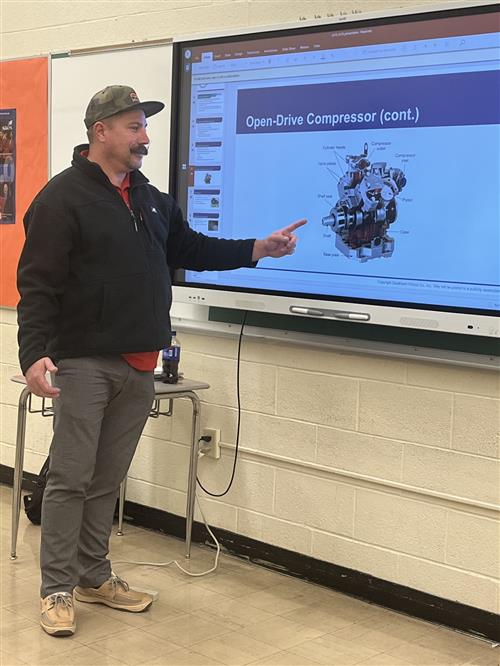
AC 101; Year One: This course covers safety, introduction, mathematics, refrigeration fundamentals, compression systems, refrigerants, recovery, electrical, and work drawings.
AC 201; Year Two: This course covers applied mathematics, refrigeration systems, servicing and installation, AC fundamentals - heating - cooling - humidifying, heat pumps, electrical circuits and controls, motors, and an introduction to troubleshooting. Lab Fee includes CFC Certification.
AC 301; Year Three: This course covers AC systems, heat loads, refrigerators and freezers, commercial systems, servicing, installation, absorption systems, and troubleshooting.
AC 401; Year Four: This course covers commercial systems - heat load sand piping, special refrigeration systems and applications, solar energy, electric circuits and controls and troubleshooting.
2025 Electrical Apprentices' Presentation
2025 Barbering Apprentices' Presentation
2025 Cosmetology Apprentices' Presentation

